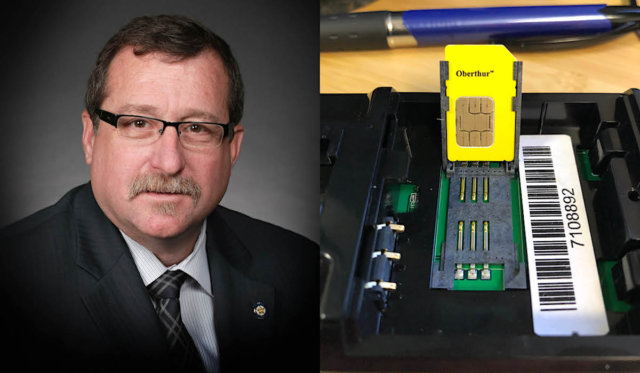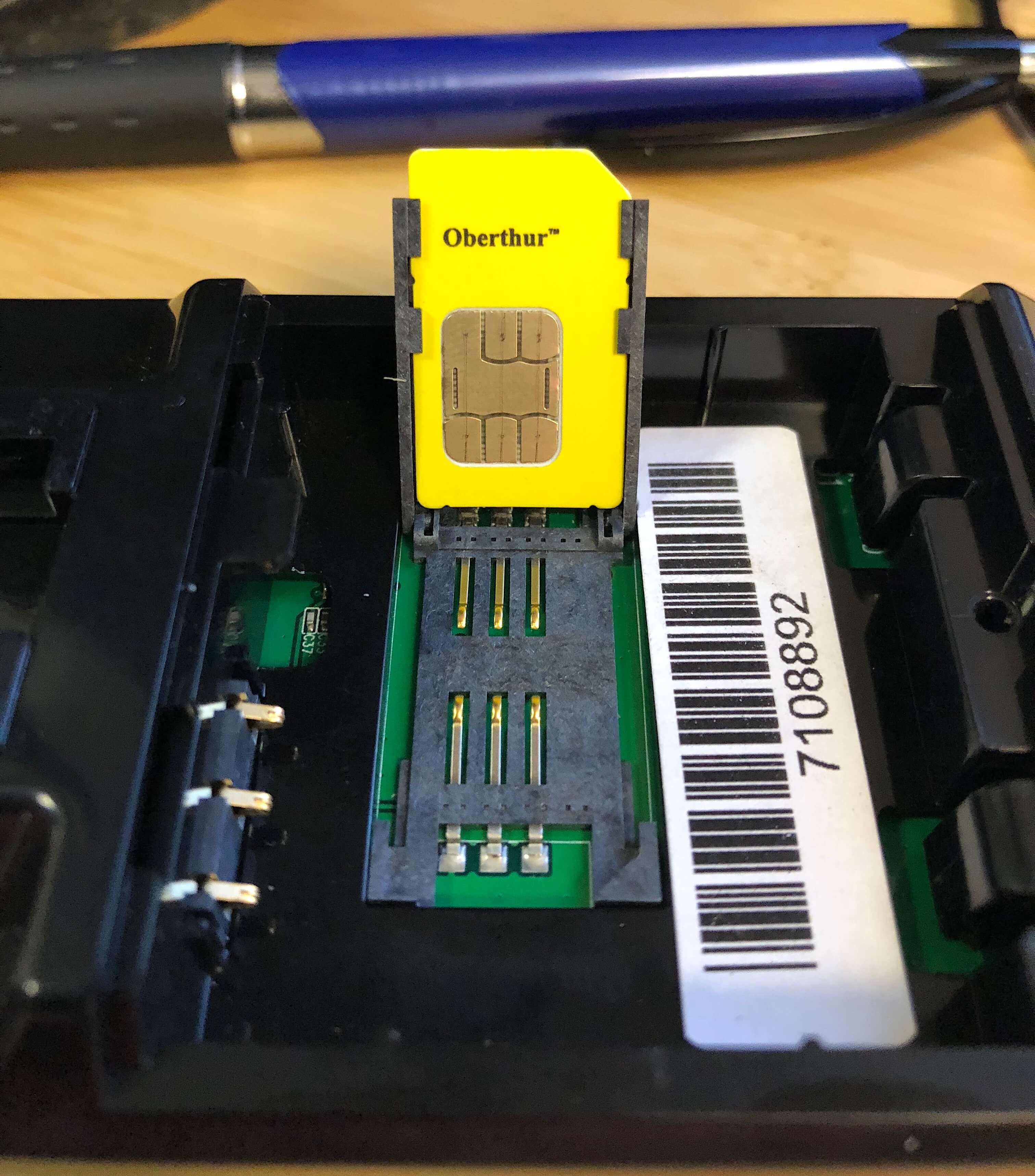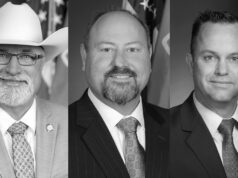
The Oklahoma State Bureau of Investigation has opened an inquiry into alleged stalking of Rep. Mark McBride (R-Moore) that could be turned over to the state’s attorney general or the Oklahoma County district attorney for consideration of criminal prosecution.
After finding a remote-tracking device attached to his pickup truck in December, McBride called Moore police and ultimately filed a lawsuit in Oklahoma County District Court.
“I can tell you we are working an incident involving the representative as a potential victim,” OSBI public information director Jessica Brown told NonDoc, saying the situation could “potentially” be criminal.
McBride — known as a defender of oil-and-gas industry tax incentives and a critic of the wind industry — said he found the device underneath his truck Dec. 4 after being told that a private investigator had been contacted about following him. McBride said he saw a pickup truck parked behind his property and, later that night, decided to search his truck as friends had suggested.
“I crawl under my truck, and I find this damn thing,” McBride said when asked about the lawsuit. “I see this box, and I’m like, ‘What in the hell?'”
In a court filing, McBride’s attorney, Kim Tran, requested that the court issue a subpoena to “non-party” U.S. Fleet Tracking Services, which “serviced and/or sold the device.” The court filing says the device (pictured below) was manufactured by u-blox America, Inc.

Judge Roger Stuart granted the subpoena request Jan. 3. McBride said he knows the identity of the private investigator whose firm was named by U.S. Fleet Tracking, but he declined to disclose the name at this time in an effort to support the ongoing investigation.
Moore Police Department Lt. Kyle Dudley declined to release the report filed by officers the night McBride found the tracking device, saying an OSBI agent believed “releasing the report would hinder his investigation.” Moore police officials said they were not required to release the report as a public record because it was filed as an “information report” instead of an “incident report.”
‘Potentially criminal’
McBride is one of multiple lawmakers who have told NonDoc they believe private investigators followed them at various points in 2017.
“I am aware that a number of legislators believe they have been tracked or followed over the last year,” Oklahoma County District Attorney David Prater said Friday. “I can tell you I have had a total of, I believe, four make contact with me and just advise me that they felt like they were being tracked, followed or pursued in some way.”
Prater said the described actions of private investigators were “potentially criminal” and said he encouraged the lawmakers to file reports with law enforcement.
“The four legislators who have had direct contact with me have not further pursued the matter with me,” Prater said before declining to identify them by name. “I don’t want to breach their trust or affect a potential investigation.”
RELATED
Tracking of lawmakers: ‘The purpose is intimidation’ by William W. Savage III
Asked to discuss a hypothetical situation where a tracking device is placed on a lawmaker’s vehicle, Prater said it could be punishable as a “stalking-type crime.”
“There are a number of other crimes that might allegedly be committed if the information that is received is used to threaten or attempt to coerce the lawmaker,” Prater said. “It is a serious matter because ultimately what it leads to is coercion and, if not overt threats, implied threats.”
Asked about McBride’s case, Brown said OSBI does not provide details about ongoing investigations.
“Threats to public officials are one of the few crimes that OSBI investigates and has original jurisdiction to do so,” she said. “You have to take them seriously.”
Brown confirmed that the agency receives many reports of lawmakers feeling threatened by the words or actions of others. For a companion story, NonDoc spoke to four other GOP lawmakers who were informed of tracking threats posed to them in 2017.
Follow NonDoc:
Mark McBride: ‘It’s intimidation’
Prater said he could not discuss McBride’s situation specifically, but he did say any scenario where someone is being followed can be dangerous.
“Without trying to be sensational about it, people can be hurt or killed in these types of situations,” Prater said.
McBride said he has been concerned for his family’s safety, and he said he hopes the lawsuit yields information that helps determine who specifically is responsible.
“We are going to get to the bottom of this,” McBride said. “It’s intimidation. Are they wanting to influence legislation? Is it extortion? What’s the end game? And, of course, you’ve got to have in the back of your mind, ‘Do they want to do you or your family bodily harm?'”
Asked if he felt placing a tracking device on his truck was appropriate, McBride said absolutely not.
“That’s why I’m filing legislation — not to protect me, but to protect the public from this type of behavior,” he said.
McBride said the bill he is filing will amend stalking statutes specifically to prohibit using GPS or other monitoring devices to track a person’s movement without his or her consent. He said the language of the bill will be similar to HB 1516 that stalled in a conference committee in 2015.
McBride called the tracking of himself — or anyone — “scary.”
“It’s cost me literally thousands of dollars to secure my home and other things to make my family safe,” he said, noting that he hired his own private investigator to look into the matter. “That stuff’s not cheap.”
Prater said individuals and organizations should think twice about hiring private investigators to follow lawmakers.
“They need to be prepared to face the consequences,” he said. “It’s a very serious matter and can lead to people getting hurt.”
Asked if he would call tracking legislators “stupid,” Prater paused.
“Foolish at best,” he said. “Foolish and very reckless.”




















